- Home
- Lauren Gilley
Made for Breaking (The Russells Book 1) Page 2
Made for Breaking (The Russells Book 1) Read online
Page 2
“This one’s a good one.”
“That’s what you said last time.”
“I know, but this time, I mean it.”
With a sigh, Ray folded up the paper and pushed it to the side, picking up his steaming coffee mug instead. Beyond Mark, Cheryl stood at the stove in lemon yellow capris and a white button-up blouse, yellow pumps, looking like June Cleaver as she slipped on a pair of potholders and crouched to pull a baking tin of homemade bread from the oven. Her kitchen was a modern chef’s masterpiece of stainless and black granite: Mexican tile floors, custom cabinetry. When she turned to give him a look over her shoulder that said humor your brother, he saw the diamonds around her throat he’d given her, the studs that glittered in her pretty ears, and would have done whatever his brother asked if she’d just keep giving him those looks.
“Alright, let’s hear it,” he said.
A smile stretched across Mark’s still-boyish face. “I wanna open a garage, the guys and me. Custom classic car restoration. Just a small place, really focus on quality over quantity. You know how I always wanted my own place…”
Three Years Ago
“News breaking today that Georgia attorney Ray Russell is being disbarred. This comes on the heels of Russell’s escape from obstruction charges during his latest case. He may have avoided arrest, but he did not, however, keep his job…”
Lisa pulled the hood of her light, fitted sweatshirt up over her head and turned away from the Best Buy electronics display where two dozen high-priced TVs were filled with images of a perky, blonde reporter telling the camera that her father was no longer allowed to practice law. Tears burned the backs of her eyes and she blinked at them in vain, sympathetic pain for her father filling her up.
With her head bowed, eyes trained on the toes of her boots, she didn’t see Missy Albright until she was nearly colliding with her.
“Watch where you’re going!”
Lisa’s head snapped up, hood slipping off her dark hair, and she was not properly composed for a run-in with Missy. Missy who’d spread rumors about her in high school, who’d worked relentlessly to turn a whole generation of girls against her out of spite and jealously. Missy who’d married Tristan just three months before, the two of them making a beautiful picture in the Sunday paper.
Today, the tall, long-legged blonde was in a denim mini skirt and furry Ugg boots, a t-shirt with the word delicious printed across the chest. She had the fashion sense of a fifteen-year-old, and a fake-and-bake tan. She sipped an iced coffee through a trademark Starbucks green straw and looked completely disgusted to have been bumped into by Lisa.
“Sorry,” Lisa managed and side-stepped the blonde.
Missy huffed. Then laughed. “Heard about your dad,” she called to Lisa’s retreating back. “Whatcha gonna do without Daddy’s money? You and the rest of the Beverly Hillbillies gonna go back to the mudhole you crawled out of?”
“How’s Tristan?” Lisa whirled around, her smile more of a snarl. “He found wife number three yet?”
The blonde was such a good actress that, even if the jab had affected her, she didn’t show it. Her painted lips curved in a false smile. “There’s that temper,” she purred. “Tristan always hated that, you know. It’s so…trashy.”
Trashy? Trashy?! When Missy looked like a stripper who’d just gotten off work? A half a hundred insults boiled up behind Lisa’s tongue, but a sharp glance from a passing employee kept her quiet.
Ashamed, aching inside, she turned and headed toward the front of the store, Missy’s laughter echoing behind her.
The rain had been falling steadily since dawn. They’d lugged boxes in the rain, had toted mattresses and hauled furniture in the rain. Now, as evening painted the gray sky with another layer of darkness, Lisa lingered in the front door, staring out at the weed-choked lawn. The wide, deep porch with its Doric columns and high ceiling had once been beautiful. Now the paint had peeled up in thick strips like scabs off a wound, exposing natural wood tones and rotten places. Wisteria had claimed one column and rode it all the way up, its violet blooms vibrant against the dying house.
It smelled dank and full of mildew inside. They had put buckets out to catch ceiling drips. Cobwebs with spiders big as Shelob filled up every corner; green mold clung to baseboards and globes of lamps. Upstairs, the sounds of footsteps echoed like gunshots on the hardwood.
Lisa went outside, her boots thumping over the boards of the porch as she walked toward her dad.
Ray had one shoulder propped against a column, staring out into the heavy mist that hugged the world, the water that beaded on every leaf and branch.
She didn’t remember her grandparents’ house like this. In the pictures, when Martha and Harry Russell had been alive, the place had gleamed: a birthday cake of white clapboard on a plate of crisp green lawns full to bursting with flowers. But it had been empty since before she was born, and it was abandoned, rotting, and haunted.
“What are we gonna do now?” she asked, just loud enough to be heard above the soft pattering of the rain.
Ray gave no indication that he’d heard, but she thought his shoulders bowed when he sighed like an exhausted, defeated man. “We’re gonna start over,” he said. “That’s all we can do.”
2
Present Day
The outdoor security lights were on timers and clicked off at exactly one-thirty a.m. every night…morning…whatever. Lisa was too tired to be nitpicky about the details because it was three-thirty and she was piloting her truck up into the drive and pulling all the way around the house to her usual parking space in front of the carriage house. It was dark back there, the tall trees holding hands up above the drive, creating a deeper dark than that of night. The white clapboard of the rear of the house seemed to glow, and even though it was now full of people and furniture and fresh air perfumed by cleansers, flowers and laundry detergent, at times like these, it still had the air of a haunted mansion about it: The kind of place where ghostly confederate soldiers wandered the halls, moaning and rattling chains and doing whatever it was that ghosts did.
It was an effort to drag herself out of the truck. And she toed off her platform sandals with one arm braced against the tailgate, feet too sore to make it to the back steps. I bet this is what a stripper feels like, she thought as she massaged her arches. All the bartenders and waitresses at Double Vision had a dress code: heels, super-short cutoffs, and a pushup bra if Mother Nature hadn’t been generous enough. By the end of her shift, the bra was digging into her ribs, her feet felt like someone had run railroad spikes through them, and her cheeks were stiff from smiling.
It could have been worse: her tips could have been in her panties and not in her purse.
Sandals dangling from her fingers, she hiked her bag back up her arm and tiptoed barefoot across the dew-dampened driveway, biting her tongue each time she stepped on an acorn. She paused once she’d gained the comfort of the screened-in back porch and greeted her dog. Hektor missed nothing, and he’d known the sound of her engine, the whisper of her feet over the ground. His nub of a tail was wagging as he greeted her with sleepy eyes and a yawn. Lisa scratched behind the Doberman’s cropped ears until he went back to his big dog bed in the corner. She unhooked her bra, pulled it out through an armhole of her tank top and stuffed it in her purse. She stowed her shoes on the rack by the door beside the guys’ boots and then noticed there was a light on inside.
Her mother was in the kitchen, the lamp tucked beneath the cabinets up on the counter casting a muted glow that didn’t reach into the corners of the room. Cheryl sat at the long, rustic table, a silk robe open over terry cloth pajamas, her hair up in a clip, dark strands loose around her face. She glanced up from the open sketch pad spread before her and looked toward the door.
“Hey, sweetie.” Her voice was thick with needed sleep.
Lisa should have gone upstairs, but at the moment, any resting place on her trip between back door and bedroom was welcome, so she managed to take the sea
t across from her mom. “Hey.” She propped a hand beneath her chin, eyelids flagging. “Can’t sleep?”
“Struck with inspiration.” Cheryl turned the sketch pad and slid it across the table. An outdoor kitchen stared up off the page: a white pergola over a stone patio that was outfitted with a stainless sink and grill, burners, an oven, a dishwasher, a wine cooler. A peninsula of rustic, stacked stone served as a bar, ringed by stools.
“Very man cave-y,” Lisa said, passing it back. “I like.”
“Yeah?”
“Yeah.”
Their interior design business had started as a guilty wish for both of them. Then they’d started talking about it. It wasn’t off the ground – they had yet to take on a client – but it was a constant topic between them. Lisa wasn’t as hopeful as her mother, hence the pushup bra and the steady gig at Double Vision, but sometimes, late at night – morning – staring at her bedroom ceiling, she dreamed about their business cards, their full appointment books, and most of all, their reputation. She wanted to have a good reputation for once.
She was hopeful, but not optimistic.
“I talked to Patty Smyth today,” Cheryl said, spinning her pad back around and taking her pencil to the sketch again. “She’s interested in having her husband’s office redone now that they’re both working at home.”
“Hmm.” Lisa picked at her peeling red fingernail polish and didn’t tell her mother that Patty Smyth had made vague hints about hiring them for the past year, none of them ever coming to fruition. When she glanced up, Cheryl was staring at her, nose wrinkled.
“You don’t think it’ll happen.”
“I dunno what I think,” she admitted.
“I wish you’d stop doing that.”
“Doing what?”
“Being so much like your father.”
A smile touched her lips. “Just what every girl wants to hear.”
“Truth hurts.” Cheryl returned the smile, then was overtaken by a yawn that Lisa could tell she tried to stifle.
“You should get some sleep, Mom.”
“You too. Shower first, though. You smell like a bar.”
“What’s wrong with you?”
Lisa pushed her mirror-lensed aviator shades up her nose with a knuckle and squinted at her cousin through them. She felt the wrinkles between her brows and at the corners of her mouth, and didn’t care. “I got three hours of sleep,” she croaked, “that’s what.”
Johnny Russell – Mark’s youngest, and the only one of his two children he actually ever saw – had gone from pudgy kid to lanky young adult in the past couple of years. At nineteen, he was proud of the dark scruff on his chin and had developed an addiction to muscle shirts and hair products. He had a hip propped against the desk, arms folded, and was much too alert and perky for her tastes at eight-something in the morning.
“Did you work last night?”
She bit the tip of her tongue instead of pointing out the stupidity of his question. The computer was on and she swiveled her chair toward it in the hopes he’d take his inquiring little ass elsewhere. He was more a brother than a cousin to her, but for that reason, he got on her nerves.
Lisa took a sip of her coffee and tried to toss her functioning brain cells into her day job. Work orders had been dropped onto the desk, scattered, and now she had to put them in order and then key them into the electronic spreadsheets that she couldn’t get any of the guys to use. Her Uncle Mark was a genius when it came to the cars, but paperwork eluded him.
“Did you hear?” Johnny asked, moving around the desk so he could plop down into the chair across from her.
“Don’t know,” she said as she shuffled the work orders into a tidy pile and scanned the topmost to determine its date.
“We got the Trans Am.”
“You what?” Lisa’s head snapped up and her hands dropped, paperwork forgotten. She pushed her shades on top of her head, the news doing what caffeine had failed to: wake her up. “Are you serious?”
A wide grin stretched across his face, making him look like his father. “You wanna come see it?”
King Customs was a small garage: two bays, an office squatting beside it on a narrow lot between a gas station and the beginning of a strip mall full off cafes and nail salons. It had started as “King of Customs,” Mark’s one streak of braggadocios pride, but had been shortened because no one seemed to want to use the “of.” Alpharetta real estate was pricey and hard to come by, so the grand vision of a teeming shop had been whittled down to something more affordable, something manageable. Ray had funded the project and Mark was still in the process of paying him back – a feat that seemed impossible due to the slow nature of classic car restoration.
The morning was already muggy and sticky with humidity as Lisa followed Johnny through the connecting door from the office into the first bay. Both roll top doors were open and one of the guys had Bad Company playing on a radio, the song muted by the sound of passing traffic. Eddie and Sly were having their morning smoke break – soon to be followed by a mid-morning smoke break – and Rico was rifling through a Craftsman tool chest.
But the Trans Am sat, waiting to be fawned over, silent, full of promise.
Its original color was impossible to tell because now it was covered with rust and Bondo. It lacked wheels, tires and a windshield.
“Damn,” Lisa murmured, stepping down into the bay and circling the ruined Pontiac. “What’s under the hood?”
“Take a look.” Sly’s voice drew her attention. The mechanic ground his smoke out on the heel of his boot and nodded toward the car. In the shade of the garage, his eyes almost seemed to glow. His face was, as it normally was, a flat mask that gave nothing away. Maybe it was the eyes, maybe the short chestnut hair, his love of white t-shirts, but Lisa thought it was his aloofness that had always brought Steve McQueen to mind when she looked at the man. Sly was cool where most were egotistical…lazy too, but cool.
With no regard for her nails – they were short, the polish was peeling, and she didn’t mind getting her hands dirty – she worked the release open and levered the hood up. She sucked in a breath.
“Is this a four-fifty-five?” It was a mess of dusty coils, snakes and geometric shapes, but she’d flipped through enough of her uncle’s manuals to know the engine for what it was.
“Yep,” Johnny said proudly, stuffing his hands in his jeans pockets. “It’s a seventy-six, got the original Pontiac V8 in it.” The kid’s smile stretched ear-to-ear. “Can you believe it?”
“No,” she said, honest, feeling a smile steal across her own face. “Where the hell did he find it?”
“Some old dude had it rotting in his back yard,” Eddie said with a chuckle. “Guy had no idea what he was sitting on.”
“No kidding.” As her eyes roved over the Trans Am’s innards, she gave an internal nod of satisfaction. Her Uncle Mark and Johnny had been talking about having one of these since Johnny was old enough to understand what they were. There’d been a time, when Ray had been working out of a plush Alpharetta law office, that he’d tried to track one down for his brother. Mark had refused – he’d lived off Ray’s charity enough already, he’d said. Dreams weren’t worth a shit if you didn’t reach them by yourself.
“She’ll be pretty,” Eddie said, then shot Johnny one of his killer grins. “Ten-four, good buddy.”
“Shut up.”
Lisa lowered the hood with care. “It’s beautiful. At least, it’s gonna be.” There were grunts of agreement. “Where’s Mark? His baby’s here and he’s not?”
Sly gave away the tiniest of smiles. “He and your dad had an appointment.”
“I don’t really know what to make of this, Padre.”
Our Lady Catholic Church of Cartersville was not the small city’s most popular Catholic church. It sat in the middle of a lawn that was really a field, amongst a clearing off a skinny road that slithered its way through pastureland like a young rat snake. Beneath a heavy drape of power and phone lines, the
church sprouted up out of the grass, its single steeple threatening to get them all electrocuted. The grounds hosted a cemetery ringed by a chain-link fence, a gravel parking lot, a series of outbuildings that served as storage for the lawnmowers and church vehicles. Father Morris lived at the back of the property, in a white cottage that was his rectory.
Ray sat in a ladder-backed chair at Father Morris’s kitchen table. Mark was beside him, Father Morris across from him, the cleric’s back to the bay window so that the incoming light streamed around him like a halo. Above the holy man’s shoulders, Ray watched morning hang over the lawns, and waited for a response.
Father Morris had made them coffee and laid it out on the table. Then he’d rechecked the door locks, paced across his tiny, spotless, dated kitchen, and finally pulled a flask from a small drawer beside the stove. He’d spiked his own coffee and had thrown half of it down. The eyes he lifted were braver than they had been before.
“You were a well-renowned attorney,” the priest said at last, sighing. He couldn’t have been much older than Ray, but his hair was white, the lines around his eyes deep and full of shadows.
“Past tense,” Ray said. “I haven’t practiced in three years.”
Father Morris nodded, but his gaze didn’t waver. “But a man doesn’t lose his skills because he stops practicing.”
He shared a glance with his brother. Mark shrugged. “No offense, Father,” Ray said. “But I don’t go to church for a reason: I was never good with all that speaking-in-metaphors, life-lessons shi…crap.”
“I’m not doing either, Mr. Russell. I invited you here so that I could ask for your help.”
“My help?”
Father Morris took another fortifying sip of his brandied coffee and then pushed the mug away. “People talk, Ray.” His tone took on a new edge, a casual insistence that had nothing to do with his position, like the priest parts of him had been sloughed off in an instant. “Just because I’m a man of the cloth, it doesn’t mean I don’t hear the gossip. I know you boys lend a hand when it’s needed.”

 Mystic Wonderful : A Hell Theory Novella
Mystic Wonderful : A Hell Theory Novella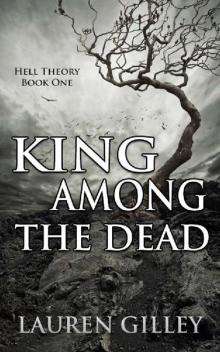 King Among the Dead (Hell Theory Book 1)
King Among the Dead (Hell Theory Book 1)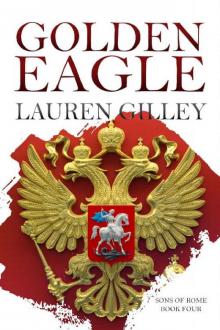 Golden Eagle (Sons of Rome Book 4)
Golden Eagle (Sons of Rome Book 4) Night In A Waste Land (Hell Theory Book 2)
Night In A Waste Land (Hell Theory Book 2)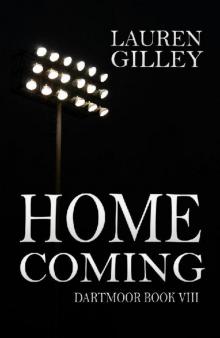 Homecoming (Dartmoor Book 8)
Homecoming (Dartmoor Book 8)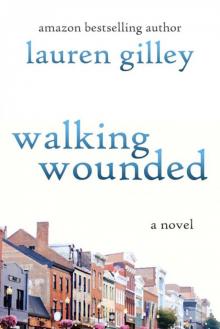 Walking Wounded
Walking Wounded Heart of Winter (The Drake Chronicles Book 1)
Heart of Winter (The Drake Chronicles Book 1)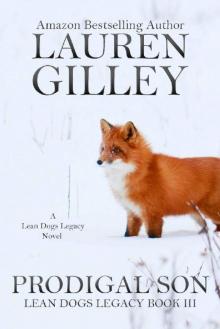 Prodigal Son (Lean Dogs Legacy Book 3)
Prodigal Son (Lean Dogs Legacy Book 3)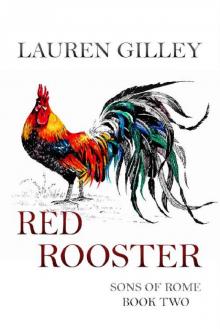 Red Rooster (Sons of Rome Book 2)
Red Rooster (Sons of Rome Book 2)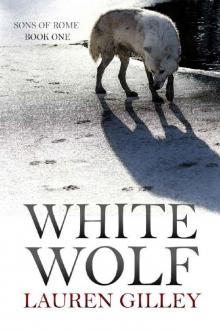 White Wolf
White Wolf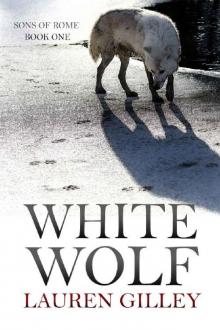 White Wolf (Sons of Rome Book 1)
White Wolf (Sons of Rome Book 1)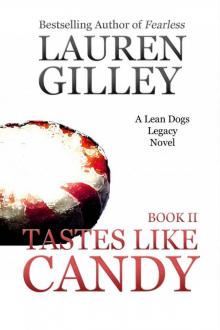 Tastes Like Candy (Lean Dogs Legacy Book 2)
Tastes Like Candy (Lean Dogs Legacy Book 2) Dragon Slayer (Sons of Rome Book 3)
Dragon Slayer (Sons of Rome Book 3) American Hellhound
American Hellhound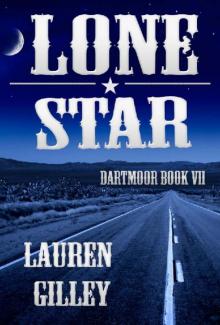 Lone Star (Dartmoor Book 7)
Lone Star (Dartmoor Book 7)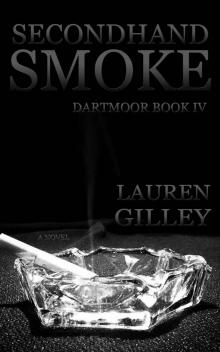 Secondhand Smoke (Dartmoor Book 4)
Secondhand Smoke (Dartmoor Book 4)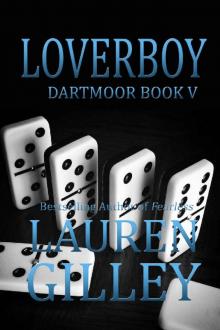 Loverboy (Dartmoor Book 5)
Loverboy (Dartmoor Book 5) The Stalker
The Stalker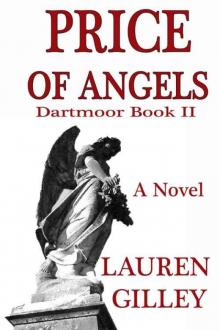 Price of Angels (Dartmoor Book 2)
Price of Angels (Dartmoor Book 2)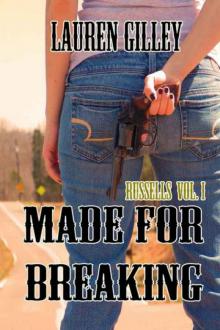 Made for Breaking
Made for Breaking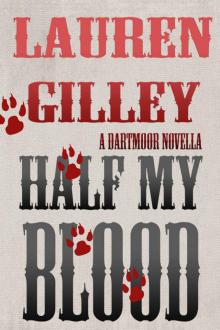 Half My Blood
Half My Blood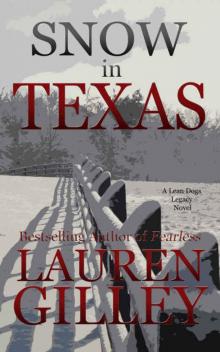 Snow in Texas (Lean Dogs Legacy #1)
Snow in Texas (Lean Dogs Legacy #1)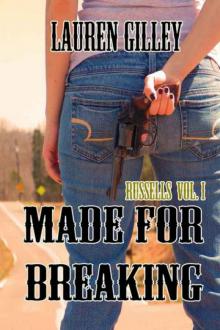 Made for Breaking (The Russells Book 1)
Made for Breaking (The Russells Book 1) Fearless
Fearless